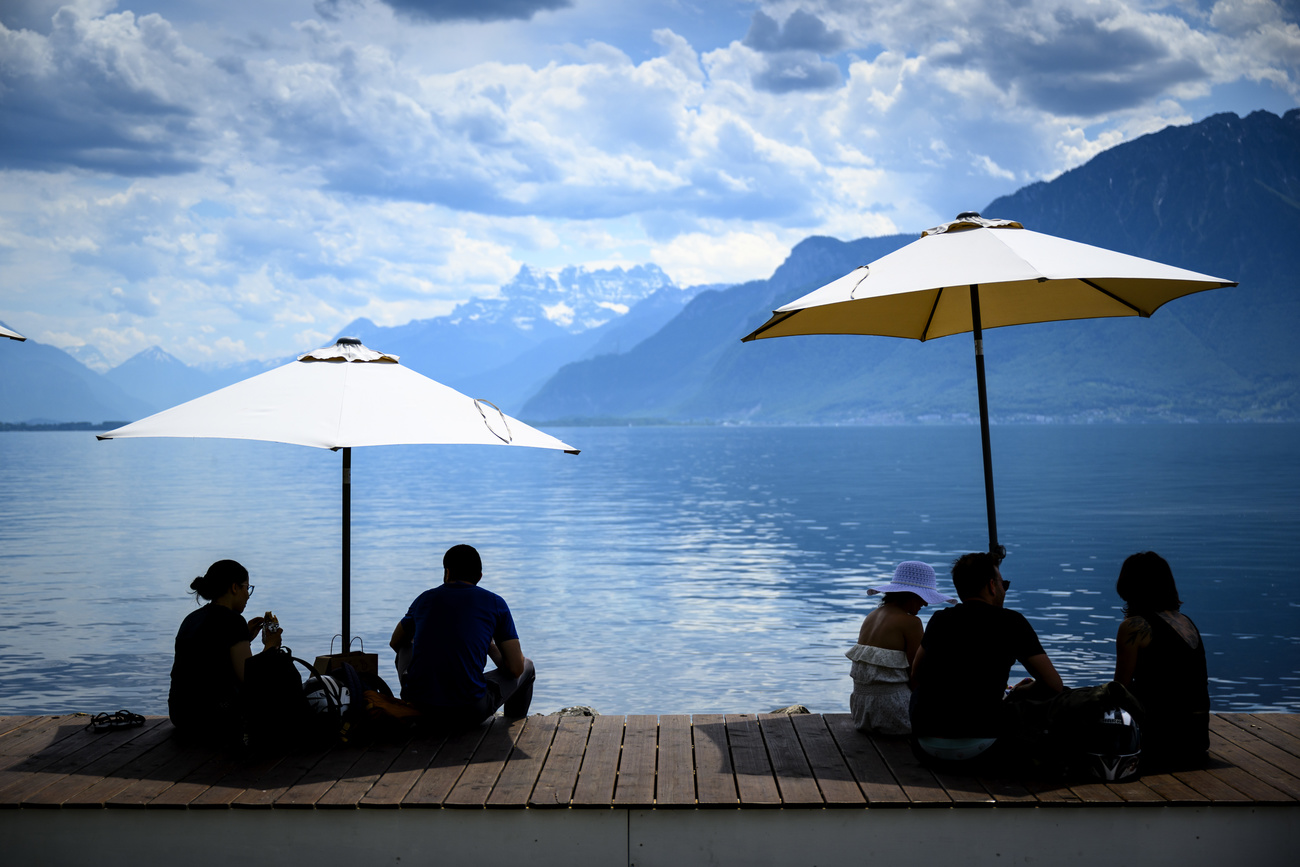
More hot days ahead, warns weather expert

A top meteorologist has told the SonntagsZeitung that new summer heat records are “very likely” in Switzerland. This might cost the country hundreds of millions of Swiss francs in productivity in the long-run, the newspapers warns.
“The chance that we will experience a warmer than normal summer is very high. I would be surprised if it went in any other direction,” Thomas Bucheli, head of the weather service for German-speaking public television SRF, told the SonntagsZeitung on Sunday.External link
“New heat records in summer are, depending on the weather conditions, very likely.”
Just how high temperatures could go in future is speculation at the moment, Bucheli said. They could rise by two to five degrees Celsius under certain conditions. “It may get as hot as 40 degrees,” he warned.
May highs
The month of May has already seen record temperatures, over 30 degrees Celsius, in parts of Switzerland – either in terms of being the hottest day since measurements began or because such high temperatures have never been measured so early in the year. Bucheli said this was “far from normal”.
He said measurements had shown that the number of summer days over 25 degrees had roughly doubled since measurements began. The trend can also be seen for the number of days of over 30 degrees. The phenomenon is “clearly” due to climate change, as has been demonstrated though models and measurements in climate research, Bucheli said.
Productivity concerns
More hot days due to global warming could also lead to a loss in labour productivity – for example in working outdoors – of over CHF400 million ($410 million) every year in Switzerland, according to research highlighted in the SonntagsZeitung.External link
The as yet unpublished study, by scientists at leading Swiss research institutions, suggests that the productivity loss due to heat is already about 0.1 per cent of labour income a year, according to the newspaper. This is around twice what is lost to seasonal flu in an average year. Scenarios see productivity loss due to heat rising in the future, depending on how severe climate change is, the newspaper continued.
Globally
The Geneva-based International Labour Organization has already warnedExternal link that an increase in heat stress at work linked to climate change could have a massive impact on future global productivity and economic losses, especially in poorer countries.
A 2019 ILO study found that the lost output would be the equivalent to 2.2 per cent of total working hours worldwide for 2030, based on a global temperature rise of 1.5 degrees Celsius by the end of this century. The total cost of these losses would be $2.4 trillion every year, the study projected.

In compliance with the JTI standards
More: SWI swissinfo.ch certified by the Journalism Trust Initiative






























You can find an overview of ongoing debates with our journalists here . Please join us!
If you want to start a conversation about a topic raised in this article or want to report factual errors, email us at english@swissinfo.ch.